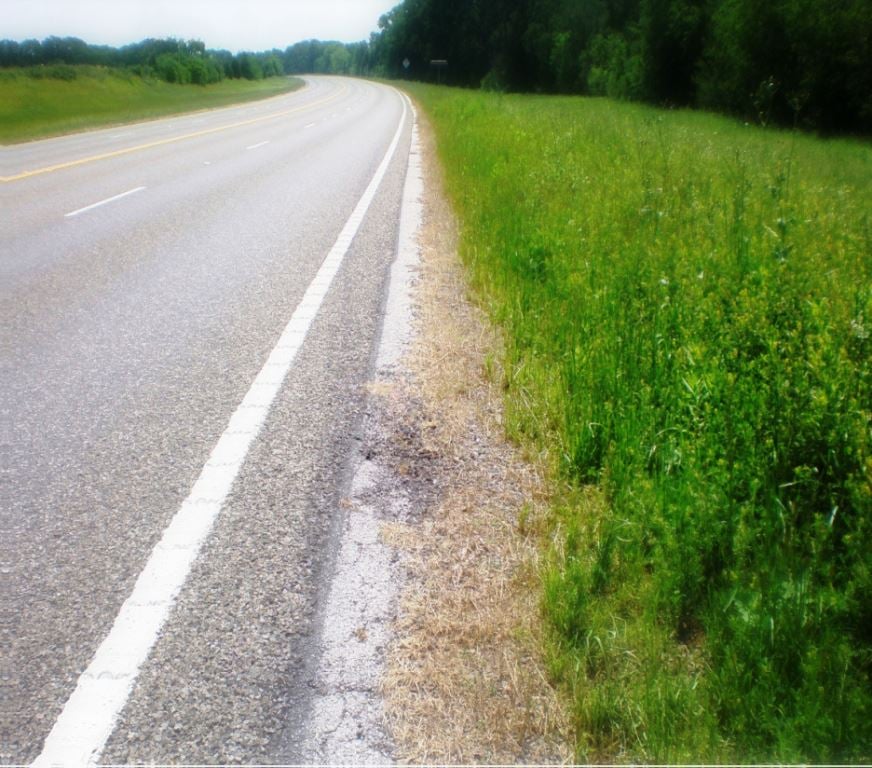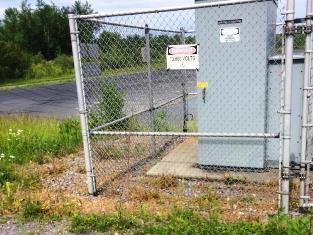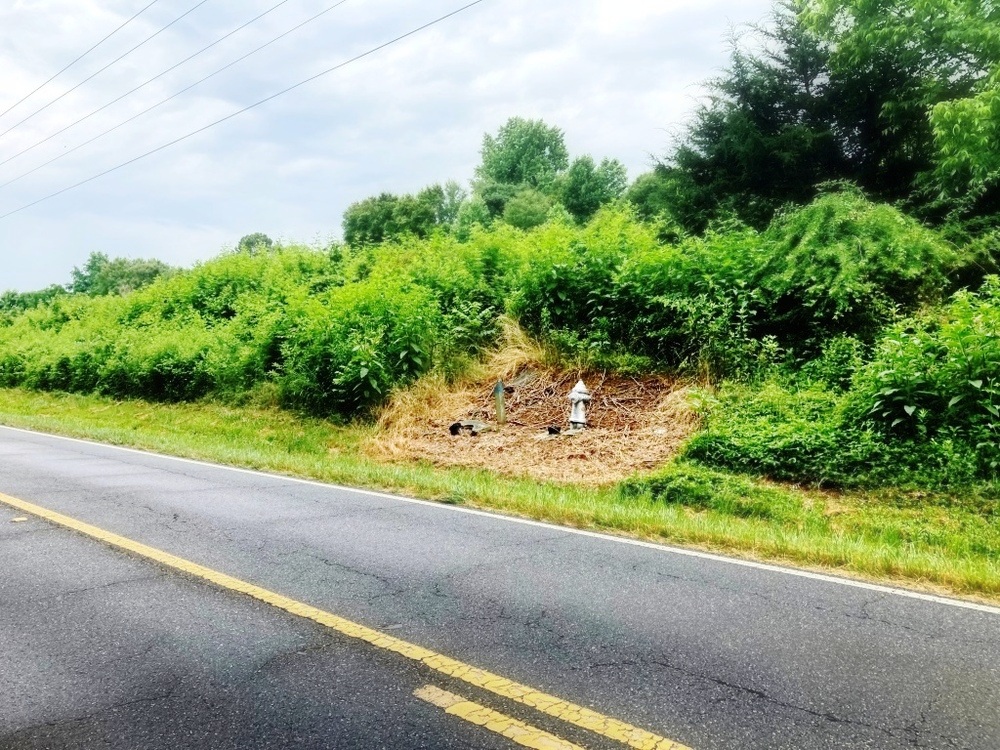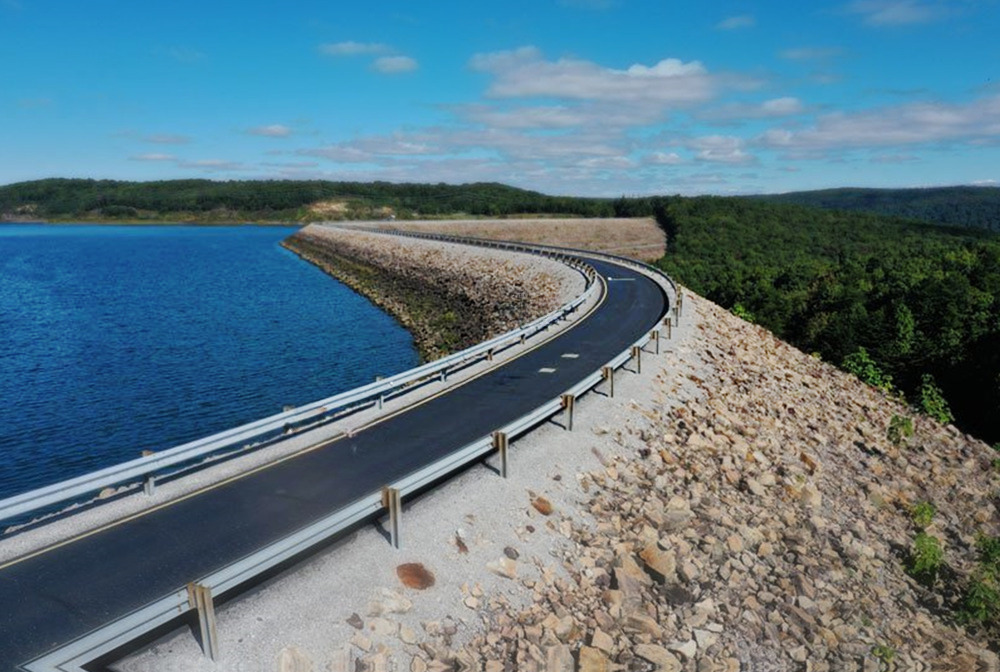
Tall weeds obstruct traffic signs and impair driver visibility. Ideal control allows low growing grasses to flourish minimizing invasives.

IWM provides a coordinated strategy, merging mechanical, chemical, cultural, and biological methods for vegetation management. Regular monitoring and adaptive strategies are key, ensuring alignment with specific conditions and weed types prevalent in different government and commercial landscapes, such as highway weed control, utility infrastructure maintenance, and industrial bare ground parcels.

Tall weeds obstruct traffic signs and impair driver visibility. Ideal control allows low growing grasses to flourish minimizing invasives.

Reliability of Infrastructure. Electricity, Gas Pipeline, First Responder Access. IVM Programs Must Consider Alerternitives.

Line of Sight Interference, Pedestrian and Vehicle Safety, Commercial Landscaping Aesthetics are all Community Factors.

Preservation of the natural aesthetic quality of Commercial Property with Integrated Vegetation Management and the right plants.
Approach, Herbicide, Rate, and Application method control vegetation for Safe Access, Walkways, Industrial Sites, Rail Tracks and Public Land.
Our skilled crews, led by licensed applicators, deploy cutting-edge equipment for precise and targeted applications, reducing maintenance costs and enhancing community aesthetics, in an environmentally friendly manner.
Maintaining a controlled roadside ecosystem is paramount. Our road shoulder treatments effectively prevent erosion, eliminating encroaching vegetation and weeds in alignment with the program's Scope of Work.
Aggressive thorny brush, vines, and noxious weeds are systematically controlled, minimizing damage and enhancing sediment filtration in road surface water runoff. This protects surrounding land and streams from potential contaminants.
Our Brush Control Programs efficiently remove thorny and woody brush along with small trees from road edges, adhering to the specified width defined by the Commercial Client or Government Right of Way agency for targeted treatments like Weed Control, Fixture base, and Guardrails.
Our applicators expertly utilize Herbicide Tank Mix, incorporating options like Escort, Accord, Ranger, Arsenal, GlySel, Garlon, and Imazapyr. The VegClear team, in collaboration with the procuring Procuring Agency decides final chemical selection and effective dilution.
VegClear, an approved State Applicator Contractor, licensed by the Department of Agriculture, operates as a registered vendor and subcontractor, strictly adhering to manufacturer labels and environmental regulations, ensuring efficacy and preventing resistance.
VegClear knows strategic sourcing models utilized by government bodies and industry. Our participation in diverse procurement processes, such as RFPs, RFBs, RFIs, RFQs, and RFTs, ensures alignment with client needs. We handle straight bids, reverse auctions, and negotiated agreements.
Understanding the procuring agency's primary needs is crucial. We consider factors like the total cost of ownership, value-added opportunities, first cost decision authority, safety priorities, and environmental commitments. Our commitment to e-enabled business further enhances our ability to serve clients effectively.
ESG Compliance, Environmental Certifications, and Operational Processes.
Safeguarded Territories, Herbicide Limitations, and Wildlife Preservation.
Resident Involvement, Municipal Oversight, and Overlay District Considerations.
Program Preference for Small Businesses, SBA Compliance, HUB Certification, UPB Standards, etc.